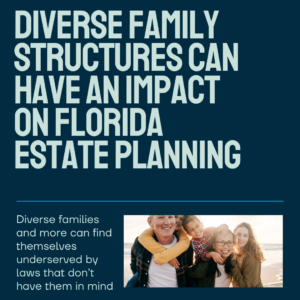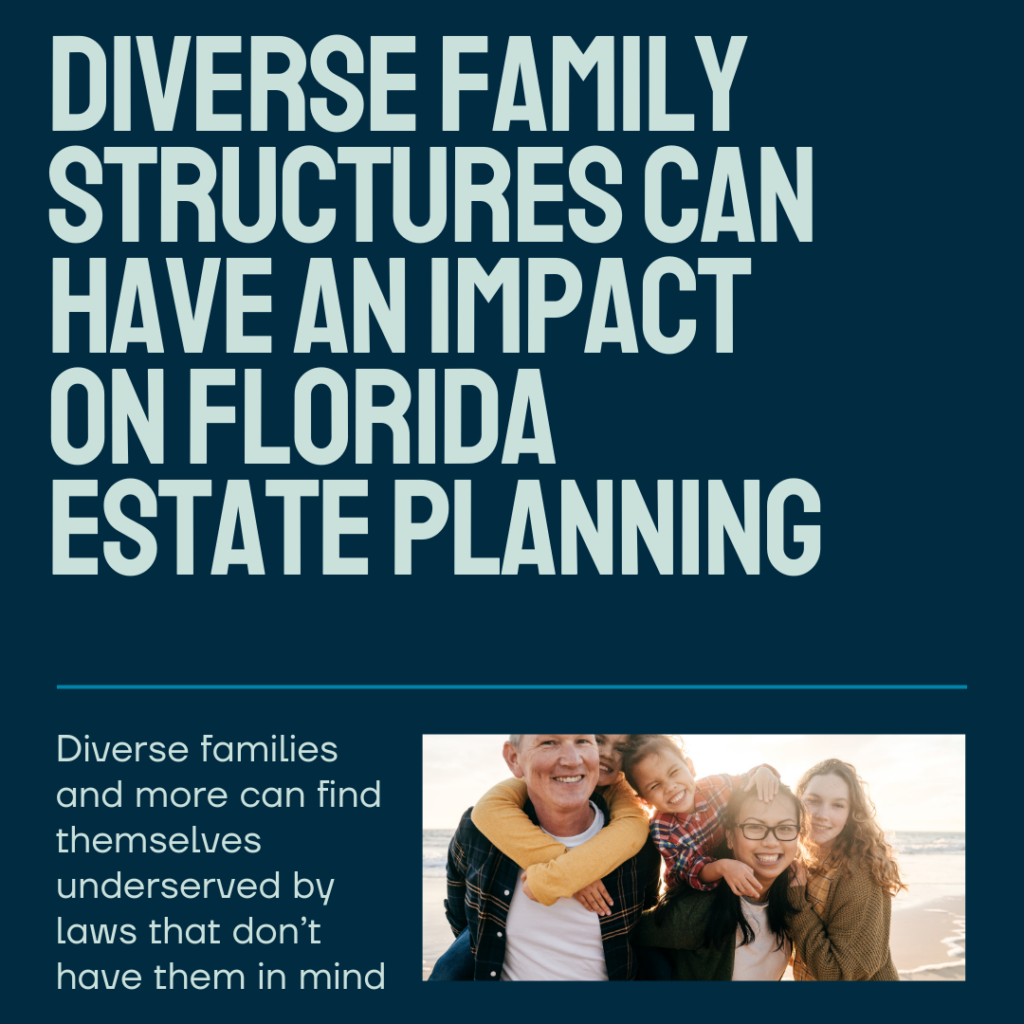American family law has traditionally focused on the nuclear family. However, Forbes reports that only 18% of American adults now fit this model. There are many new types of families today, such as blended families, single-parent households and LGBTQ+ families. Dated legal definitions of family could be a hurdle in your estate planning. However, diverse families can overcome this hurdle with knowledge and legal guidance.
families, single-parent households and LGBTQ+ families. Dated legal definitions of family could be a hurdle in your estate planning. However, diverse families can overcome this hurdle with knowledge and legal guidance.
What are the Key Challenges Faced by Diverse Families?
Most legal protections and rights cater to the assumption that a family is a married couple with blood children. This alone creates obstacles for many families, even those that look traditional. Many heterosexual couples have children but haven’t yet married. This can deprive them of various rights and may exclude partners from inheritance.
Blended families with stepchildren also frequently struggle with inheritance. If the parents fail to lay out the rights of the children, it can go to a lengthy probate process. Likewise, the children of single parents face a uniquely uncertain future should their parents die unexpectedly. Another diverse family type that frequently struggles with family law is LGBTQ+ families. The rights of same-sex couples vary widely by state, which makes estate planning especially important for them.
These diverse families and more can find themselves underserved by laws that don’t have them in mind. However, that doesn’t mean that their wishes must go unrespected. There are many estate planning tools available that can help people clarify and execute their wishes once they’re gone.
What Estate Planning Tools Can Help?
Advanced estate planning techniques can give anyone greater control of their estate. Everyone with a significant estate or minor children should have an estate plan. However, diverse families need to use these tools to safeguard their wishes.
- Wills: A well-drafted will is Step One. It makes it far easier to ensure that your assets go to your inheritors as you wish.
- Trusts: Trusts offer greater control over asset distribution while avoiding will-related pitfalls. Living trusts can be adjusted during one’s lifetime, while irrevocable trusts protect assets but are permanent.
- Powers of attorney: Financial and healthcare powers of attorney let a trusted person decide if the primary individual is incapacitated.
- Testamentary guardianship: Single-parent, blended families and same-sex couples should appoint guardians for minor children in their wills.
- Beneficiary Designations: Designate the beneficiaries for life insurance, retirement and investment accounts. This ensures that the executor of your will transfers assets according to your wishes.
How Diverse Families Can Start Their Estate Planning
The evolving definition of family challenges conventional estate planning. Unmarried couples, blended families and other non-traditional arrangements often need tailored estate plans. However, untangling estate law on your own isn’t easy.
Schedule a consultation with our firm to ensure that your wishes continue after you pass. We’ll address Florida laws and your unique family structure to craft a comprehensive estate plan that fits your diverse family.
Key Takeaways:
- Diverse Family Structures: Non-traditional families have unique estate planning needs. They include unmarried couples, blended families, single-parent households and LGBTQ+ families.
- Legal Challenges: Unmarried couples need wills, powers of attorney and beneficiary designations. Blended families need careful trust planning to avoid conflicts.
- You need tailored tools: Trusts, wills, powers of attorney and beneficiary designations are these tools. They ensure that care and asset distribution follow your wishes.
- Personalized Planning: Consult with a knowledgeable attorney. It’s crucial to create a plan that fits your family’s needs.
Reference: Forbes (April 2, 2024) “How Expanding The Legal Definition Of Family Helps Us All”








